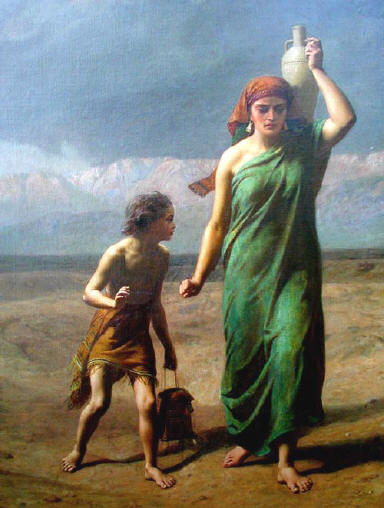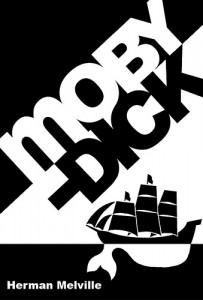Jan 29 2010
Moby Dick: A Gendered Novel?
Moby Dick, at least through the first 21 chapters, is primarily concerned with masculinity. To demonstrate, leafing through a Google image search of “Moby Dick,” one will find completely unrelated images of cars and narcotics before coming across an image invoking any feeling of femininity, let alone one of a female character. Significant characters in these chapters are almost entirely male, themes addressed are traditionally masculine ones, and allusions are to still more male characters for masculine works. Melville was also influenced, first and foremost, by male authors; stylistically by Sir Thomas Browne, the 17th century prose writer, by Shakespeare, especially for his characters, and of course, by his contemporary, Nathaniel Hawthorne, to whom the novel is dedicated.
In the opening paragraph, Ishmael tells us that, “If they but knew it, almost all men in their degree, some time or other, cherish very nearly the same feelings towards the ocean with me.” Though Melville does not mean men in the sense of humanity, he means only men, and excluding women. Ishmael holds that men go to sea and does not leave any interpretation that women too may be drawn to the sea and take up the lives of whalewomen alongside their husbands. He is a sexist and selfish narrator for our story, and when he goes on in chapter 1 to discuss his interest in going to sea as a sailor, rather than a passenger, he seems to imply that real men live as active, paid sailors, and women and the rest, go as the paying passengers.
Under the masculine perspective of our narrator, there lie some homosocial, if not homosexual themes in these opening chapters. The character interactions are primarily homosocial and may touch on a possible homosexual undertone when Ishmael must go to bed with Queequeg, though Melville heteronormatively points out that, “No man prefers to sleep two in a bed.”
However masculine, no story can be completely devoid of feminine influences. As Ishmael duly points out when describing the warmth of his and Queequeg’s bed, “…there is no quality in this world that is not what it is merely by contrast. Nothing exists in itself.” Among these touches of the other gender, we see work here fulfilled in very traditional male-female roles: The sailors are all men, while the women remain at shore to tend the the sailors, their families, and their (husbands’) businesses, as this was a sexist society. And then of course, the good old Pequot is portrayed as a female vessel, referred to as “she” as most all ships are.
Melville may have been concerned with issues of race and equality when writing his great work, but through the reading of these introductory chapters, one may doubt that he held any similar views of gender equality or the importance of the feminine perspective.
 “Call me Ishmael” (1).
“Call me Ishmael” (1).